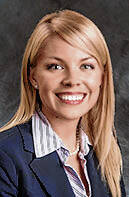It happens once every four years.
People with larger-than-life personas work for years, sometimes decades, to make it to this penultimate challenge, to compete with the best of the best, to rally with your team, and to demonstrate excellence on the largest stage. No, I am not talking about the Olympics (though these characterizations certainly could apply); I am describing political convention season.
Nestled in between the chaos of the primary season and the homestretch of the general election are the conventions. Most states host only one primary election (though Nevada creatively held both primaries and caucuses this year) and all voters and candidates who qualify participate in only one general election.
Conventions offer more because there are so many — one for both major political parties but also for some third parties (like the Libertarian party which held its national convention two weeks ago in Washington, D.C.). What conventions provide is an opportunity for a deep study into the party, including a review of the slate of candidates that will represent the party on the general ballot, a prioritization of the most pressing issues or platforms, and an assessment of the party’s opportunities and challenges in the fall election.
Conventions seem unfairly overlooked, particularly the state conventions which happen in Indiana every two years, corresponding with both presidential and congressional midterm election cycles. Even in presidential election years like 2024, which capture the most public attention and yield the highest voter turnout, state conventions seemed to be eclipsed by their national counterparts. Both events span several days, including procedural and administrative tasks in addition to showcasing great political addresses from both up-and-comers and legacy leaders within the party through a flurry of speeches aimed to rally the base.
The primary difference between the Indiana party conventions and the national ones is that those at the state still have the opportunity to select some of the remaining positions on the ticket for the general election. For the RNC convention (in Milwaukee, July 15-18 and chaired by Indiana’s own Anne Hathaway) and the DNC convention (in Chicago, August 19-22), both presidential candidates earned the requisite minimum of 1,215 and 1,968 delegates several months ago through the primaries to secure their nomination to their party’s top of the ticket.
At the state level, Republican delegates will play an important role in deciding who will join Braun as his lieutenant governor nominee. This decision is particularly unusual this cycle because Braun announced his preference for Rep. Julie McGuire as his running mate the day after he clinched the primary victory, while pastor Micah Beckwith (who lost to Victoria Spartz for Indiana’s 5th congressional district in the Republican primary in 2020) has openly campaigned for the role since last June.
Delegates are ultimately tasked with deciding the lieutenant governor candidate but this year’s convention contest defies tradition and could change the future process, particularly if Beckwith could pull off an upset.
Democrats also face a brewing battle at their convention, with Destiny Scott Wells and Beth White both seeking their party’s nomination for Attorney General. Both Wells and White cite their disagreement with incumbent Todd Rokita’s work in office as their motivation for running. Delegates at the Democratic convention will determine which candidate will appear on the November ballot.
These decisions are exactly why conventions matter, despite their diminished visibility. They are not as publicized and quite frankly, not always intended to be. They don’t directly cater to voters. That is what the primary and general elections do. Conventions serve the party insiders but the outcome of their work will affect voters and the nature of the election in the following months.
Much like the Olympic trials that determine the competitors for the ultimate race, the conventions can offer insight into the party approach and strategy, providing a measure of health and condition of the party as it rallies post-primaries and builds strength going into the general.
This weekend, the Indiana GOP will hold its statewide political convention in the Indiana Convention Center as the USA Olympic swimming trials will begin at Lucas Oil Stadium, just a few blocks south. While the general public may only tune in to the final competitions later this year, true lovers of both sport and politics recognize the importance of these contests.
Let the games begin.
Laura Merrifield Wilson, PhD, is an Associate Professor of Political Science at the University of Indianapolis. She specializes in the study of political behavior, state and local government, and campaigns and elections. She is a regular political commentator and analyst. This column was originally published at indianacapitalchronicle.com. Send comments to [email protected].





